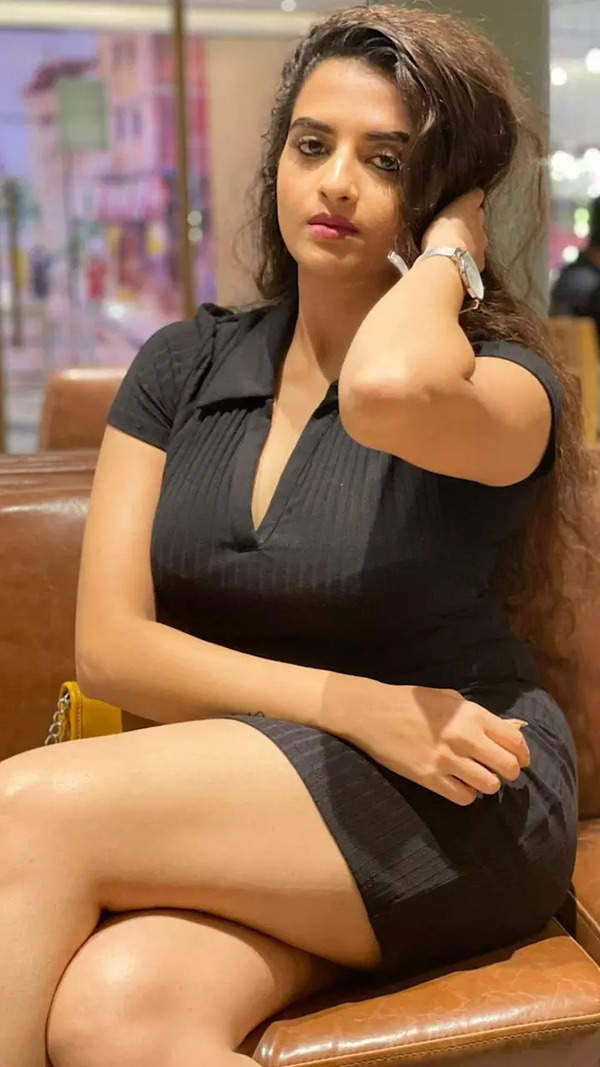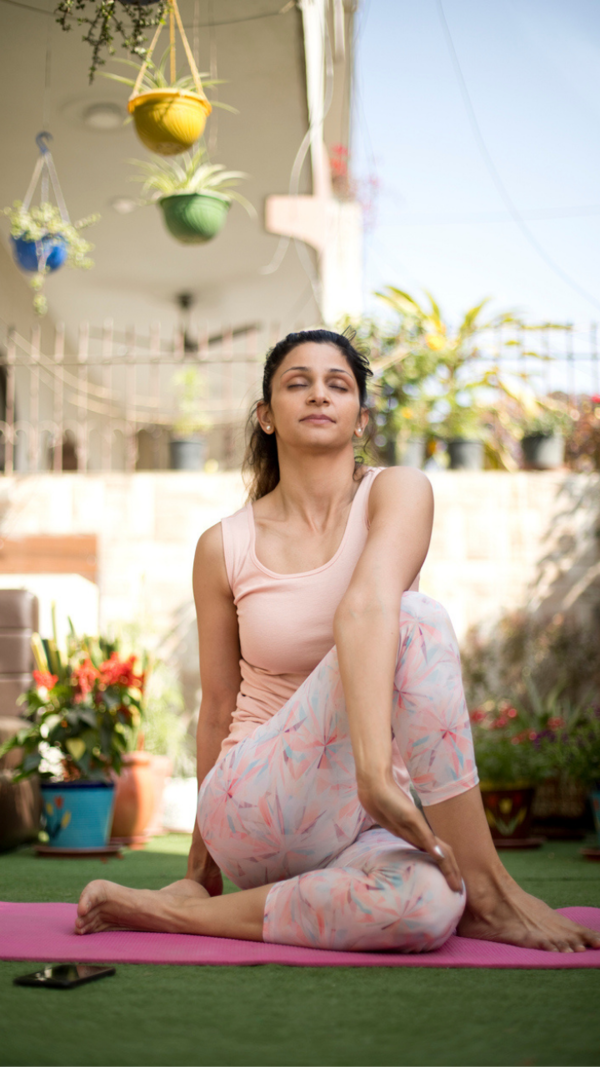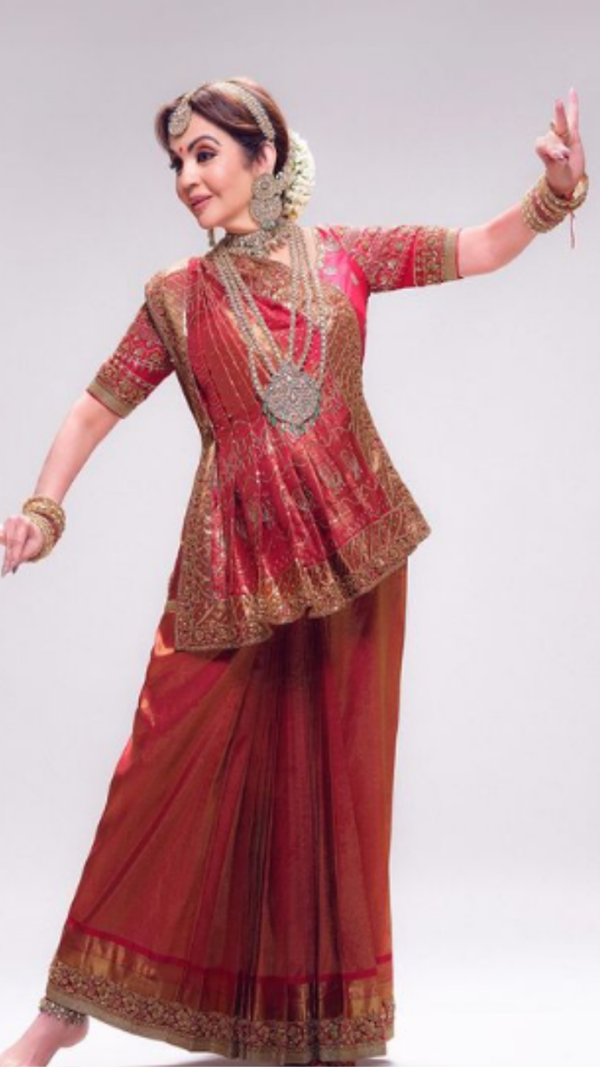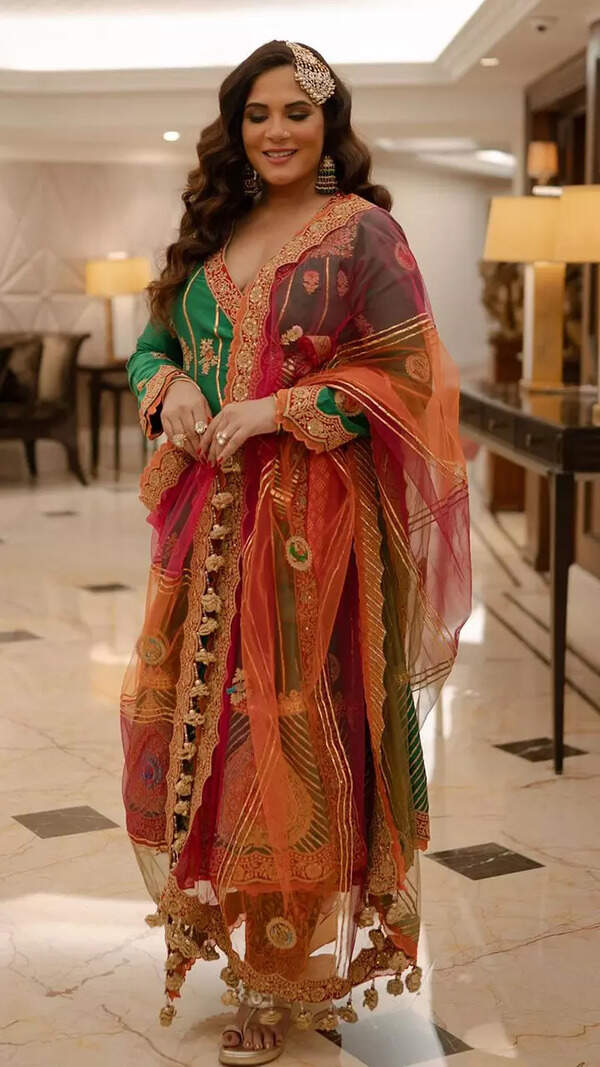- News
- entertainment
- hindi
- music
- Kausar Munir: I never planned to become a lyricist
Trending
This story is from June 27, 2014
Kausar Munir: I never planned to become a lyricist
Says Kausar Munir who has penned recent hits like Rabba, Raat Bhar and Palat Tera Hero Idhar Hai
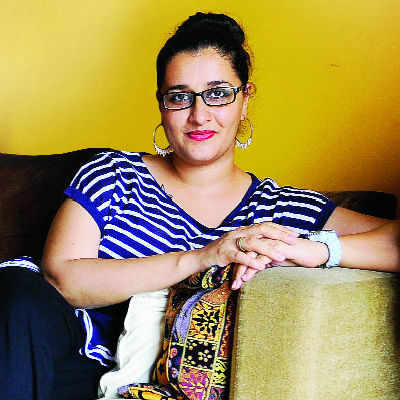
Simple but not simplistic is lyricist Kausar Munir’s mantra for life as well as for her profession. In a very short time span, she has managed to separate the wheat from the chaff and score an array of hits. She talks about the inspiration, challenges and rivalries in the music business.
Your songs Palat Tera Hero Idhar Hai, Raat Bhar and Rabba are going strong. How did these songs happen? I had written Har Ek Friend for David Dhawan’s Chashme Baddoor (2013).He was keen that I do another song. Sajid-Wajid had their tune ready and David knew what he wanted. David and both his sons work as a close knit team. Rohit (his older son) was heavily involved (with Palat... from Main Tera Hero) and we took feedback from Varun. But these songs that appear seemingly easy are the hardest to do. To crack this very simple yet catchy and populist vibe is hard, and I don’t understand the game of hits and flops. When I heard the melody of Raat Bhar, I knew it would work. The credit goes to director Sabbir (Khan, director of Heropanti). I had written something high-brow but he asked me to be simple, as a conversation between a boy and a girl. It has a resonance with younger people, it expresses their sentiment. Many have made it their status on social media.
ALSO READ: 'Palat' hits the right notes
You are a Bandra girl and have studied at St Xavier’s College in Mumbai. How did you imbibe the culture and language of Bollywood? People feel that I think in English and that I must be good with Urdu because of my name. All this is not true. For me, it is all hearsay. I have a ear for languages not because I have studied them. Mere kaan pakke hain. I was pretty good at Hindi in school. I cannot read or write Urdu but I respond to it phonetically. I used to jot down the lyrics of the songs I liked. I never planned to become a lyricist, however. I graduated from St Xavier’s College in English literature, then got into writing documentaries and then television happened with Jassi Jaissi Koi Nahin. Films happened by chance. My friend Vijay Krishna Acharya was making Tashan. He offered me to write and I came up with Falak Tak. I didn’t come here with a diary or a dream.
Who’s been your inspiration? Inspiration doesn’t apply to me as I never dreamt of being a lyricist but I’ve always been a huge fan of Gulzar sahab. In originality, he is the best. Take these words from Kajra Re (Bunty Aur Babli), ‘Aankhen bhi kamaal karti hain, personal se sawaal karti hain’. At 70, one can’t be more modern than that.
Which composers do you work well with? My first and last — Amit Trivedi and Sajid-Wajid. Every time Sajid-Wajid bag a new project, they send me an enquiry, ‘Are you interested?’ It started with Mashallah (Ek Tha Tiger), we’ve become great friends.
How do you evolve and grow in your field? A certain lethargy is a valid side effect of this business. If you’ve been noticed and are doing well, work piles up along with expectations. Two or three mistakes and you start to dwindle. So if I feel I am getting into a rut, I check myself. I say to myself, ‘Don’t be insecure, it is okay to say no to work’. For writers, reading, writing, thinking, watching movies and taking time off is part of the job. Otherwise, it is just churning.
Tell us about your future projects. I am doing the songs for Daawat-E-Ishq and Tevar, both composed by Sajid-Wajid. Besides the lyrics, I have also written the dialogues for Kabir Khan’s Phantom and the story-screenplay for Ramesh Sippy’s next.
LISTEN: Palat Tera Hero Idhar Hai on Gaana.com
Your songs Palat Tera Hero Idhar Hai, Raat Bhar and Rabba are going strong. How did these songs happen? I had written Har Ek Friend for David Dhawan’s Chashme Baddoor (2013).He was keen that I do another song. Sajid-Wajid had their tune ready and David knew what he wanted. David and both his sons work as a close knit team. Rohit (his older son) was heavily involved (with Palat... from Main Tera Hero) and we took feedback from Varun. But these songs that appear seemingly easy are the hardest to do. To crack this very simple yet catchy and populist vibe is hard, and I don’t understand the game of hits and flops. When I heard the melody of Raat Bhar, I knew it would work. The credit goes to director Sabbir (Khan, director of Heropanti). I had written something high-brow but he asked me to be simple, as a conversation between a boy and a girl. It has a resonance with younger people, it expresses their sentiment. Many have made it their status on social media.
ALSO READ: 'Palat' hits the right notes
You are a Bandra girl and have studied at St Xavier’s College in Mumbai. How did you imbibe the culture and language of Bollywood? People feel that I think in English and that I must be good with Urdu because of my name. All this is not true. For me, it is all hearsay. I have a ear for languages not because I have studied them. Mere kaan pakke hain. I was pretty good at Hindi in school. I cannot read or write Urdu but I respond to it phonetically. I used to jot down the lyrics of the songs I liked. I never planned to become a lyricist, however. I graduated from St Xavier’s College in English literature, then got into writing documentaries and then television happened with Jassi Jaissi Koi Nahin. Films happened by chance. My friend Vijay Krishna Acharya was making Tashan. He offered me to write and I came up with Falak Tak. I didn’t come here with a diary or a dream.
You seem set to rewrite the standards of lyrics in Hindi films... There was a huge discussion about the word ‘sangemarmar’ in the song Suno Na Sangemarmar (Youngistaan) but it fell beautifully into the film and became a hit. As a lyricist, I have to make the best of the small space I’ve been given in pleasing the ear. This is where the composer comes in. I can’t stray far from the song situation, and at the end of the day everybody wants a popular song. Nowadays, popular means pandering to the lowest common man. I don’t know why young people are imagined to be stupid but everybody feels jitna basic hoga utna achcha. I try to be true to myself and to the vision of my director. You have to be simple but at the same time not simplistic. The song should have some depth. If you see the work of lyricists Amitabh Bhattacharya, Irshad Kamil or Swanand Kirkire, it is high quality stuff. When we get together and discuss things, we understand how some lyrics were a compromise for the tune or for the producer.
Who’s been your inspiration? Inspiration doesn’t apply to me as I never dreamt of being a lyricist but I’ve always been a huge fan of Gulzar sahab. In originality, he is the best. Take these words from Kajra Re (Bunty Aur Babli), ‘Aankhen bhi kamaal karti hain, personal se sawaal karti hain’. At 70, one can’t be more modern than that.
Which composers do you work well with? My first and last — Amit Trivedi and Sajid-Wajid. Every time Sajid-Wajid bag a new project, they send me an enquiry, ‘Are you interested?’ It started with Mashallah (Ek Tha Tiger), we’ve become great friends.
How do you evolve and grow in your field? A certain lethargy is a valid side effect of this business. If you’ve been noticed and are doing well, work piles up along with expectations. Two or three mistakes and you start to dwindle. So if I feel I am getting into a rut, I check myself. I say to myself, ‘Don’t be insecure, it is okay to say no to work’. For writers, reading, writing, thinking, watching movies and taking time off is part of the job. Otherwise, it is just churning.
Tell us about your future projects. I am doing the songs for Daawat-E-Ishq and Tevar, both composed by Sajid-Wajid. Besides the lyrics, I have also written the dialogues for Kabir Khan’s Phantom and the story-screenplay for Ramesh Sippy’s next.
LISTEN: Palat Tera Hero Idhar Hai on Gaana.com
End of Article
FOLLOW US ON SOCIAL MEDIA
